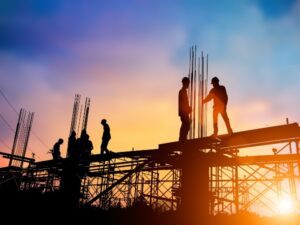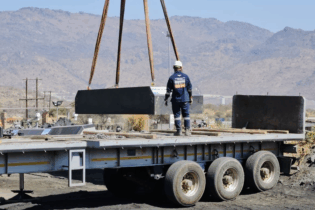The construction industry is expected to grow by 6.2% this year, but will remain in a recovery phase after experiencing a near recession that was exacerbated by Covid-19 and the associated hard lockdown. This will have a positive impact on employment, while contributing to improved sentiment towards the economy, said GVK-Siya Zama CFO John de Sousa.
Contributing towards this forecast has been improved sentiment in the market, largely due to the government’s recent emphasis on growing public-private partnerships and increasing infrastructure spend. However this does not guarantee a “immediate recovery” in the domestic construction market as the Covid-19 pandemic starts to ease or in response to government’s positive news for the industry, GVK–Siya Zama CFO John de Sousa said. De Sousa added that the positives are clear and that the outlook for the industry and greater economy indicate an upward trajectory. “This will have a ripple effect in the industry as investor sentiment improves, economies open and budgets expand. The next 12 to 18 months will continue to be a period that is focused on attaining normality as the market stabilises after the pandemic. In this time, it can be expected that margins will remain under pressure in the short term. However, in the longer term, they will continue to grow.” GVK-Siya Zama, one of the country’s largest privately held construction companies, has offices nationwide and employs about 1 500 people directly, working closely with communities and subcontractors nationally.De Sousa said while government work has been forthcoming, as has been widely noted, it’s not as fast as industry players would like it to be. This has been the case for the last five to seven years and hence believe it shouldn’t really act as a deterrent in the marketplace for local or foreign investment.
“It does, however, appear as if the government is poised to increase its spending on infrastructure, as indicated in the Sona and the National Budget speeches, there are definite efforts to encourage the private sector to increase investment, and to secure more foreign direct investment in South Africa.” De Sousa said. De Sousa said there has also been an uptick in enquiries from the private sector, especially from property owners looking to repurpose and remodel office space, as work-from-home practices are likely to remain a factor despite Covid loosening its grip. “There are a lot of property vacancies, especially in the central business districts, that landlords will need to deal with.” “We also have to try, as an industry, to be more efficient in what we do, as we are one of the most inefficient sectors in the country. This process includes skills transfer and training, a key focus for the year ahead; our aim is to improve our efficiencies, empower our staff and SMMEs and in doing so, create growth for all stakeholders in the business,” De Sousa concluded.






